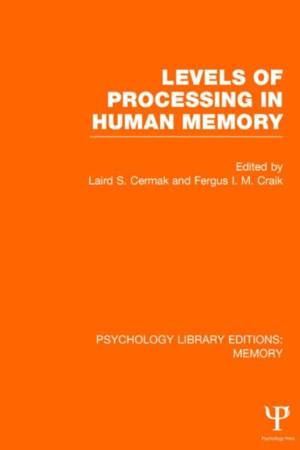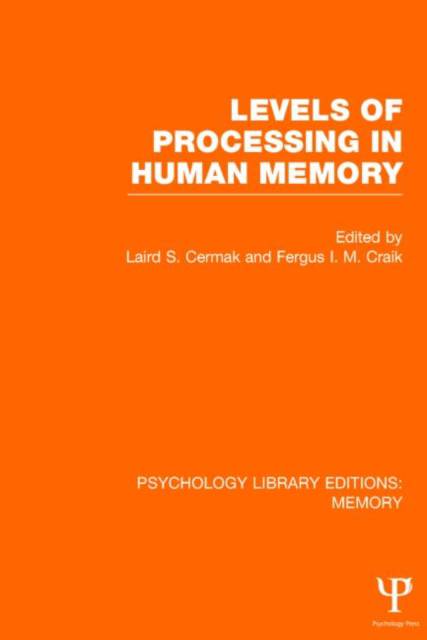
Vous voulez être sûr que vos cadeaux seront sous le sapin de Noël à temps? Nos magasins vous accueillent à bras ouverts. La plupart de nos magasins sont ouverts également les dimanches, vous pouvez vérifier les heures d'ouvertures sur notre site.
- Retrait gratuit dans votre magasin Club
- 7.000.000 titres dans notre catalogue
- Payer en toute sécurité
- Toujours un magasin près de chez vous
Vous voulez être sûr que vos cadeaux seront sous le sapin de Noël à temps? Nos magasins vous accueillent à bras ouverts. La plupart de nos magasins sont ouverts également les dimanches, vous pouvez vérifier les heures d'ouvertures sur notre site.
- Retrait gratuit dans votre magasin Club
- 7.000.0000 titres dans notre catalogue
- Payer en toute sécurité
- Toujours un magasin près de chez vous
Levels of Processing in Human Memory (PLE
Memory)
267,45 €
+ 534 points
Description
As a conceptual framework for the investigation of human memory, the levels-of-processing paradigm had enjoyed immense popularity since its introduction in the early 1970s. It was the impetus behind literally hundreds of experiments and was used as an "explanation" for a wide range of retention phenomena. Consequently, a wealth of data and theory had emerged, and this title assimilates and evaluates this information. Originally published in 1979, the distinguished contributors to the volume - both proponents and opponents of the levels-of-processing framework - present here their latest data and ideas on a viewpoint that has been a tremendous influence in memory research and related areas.
Spécifications
Parties prenantes
- Editeur:
Contenu
- Nombre de pages :
- 496
- Langue:
- Anglais
- Collection :
Caractéristiques
- EAN:
- 9781848723528
- Date de parution :
- 24-04-14
- Format:
- Livre relié
- Format numérique:
- Genaaid
- Dimensions :
- 157 mm x 236 mm
- Poids :
- 839 g






